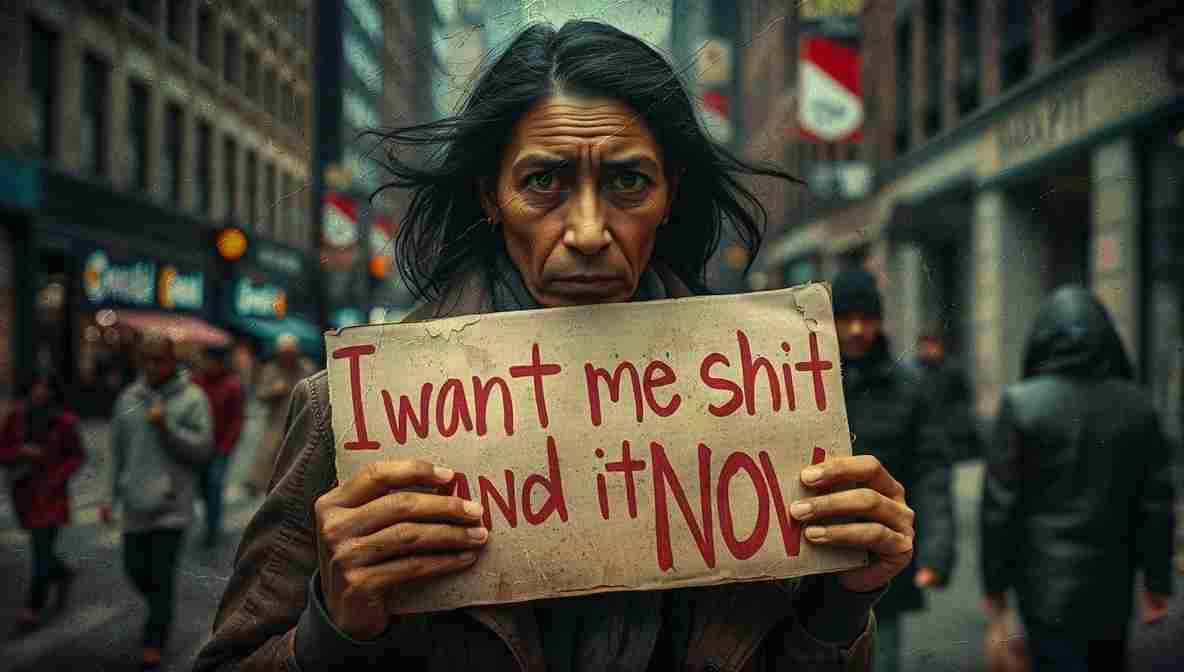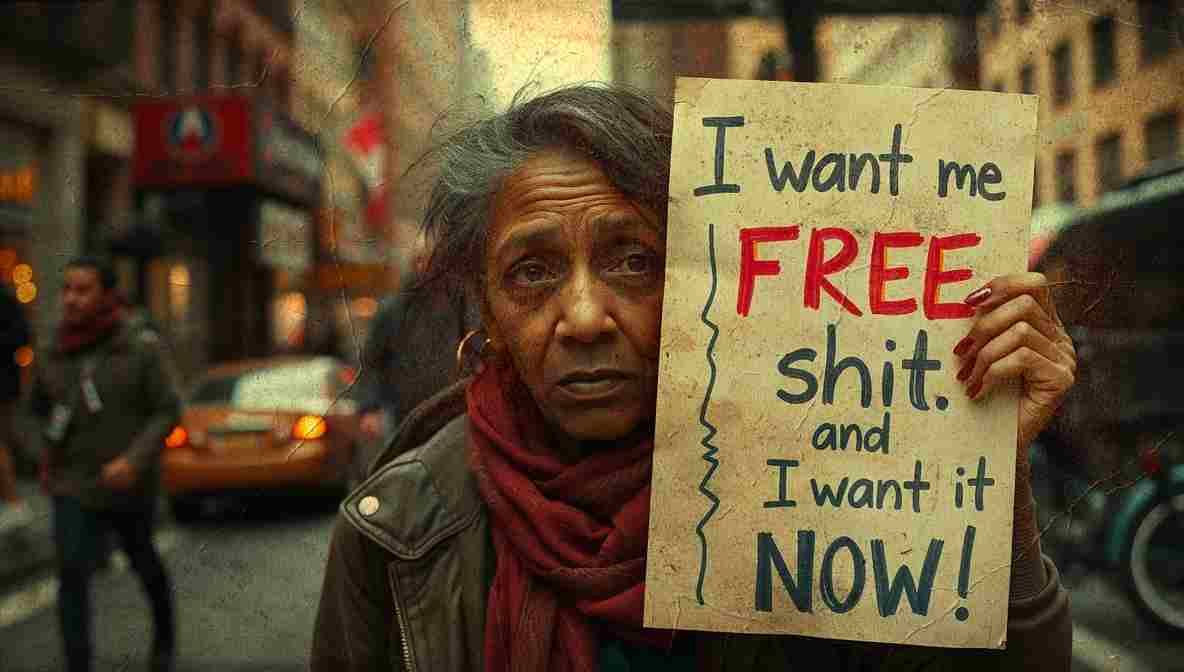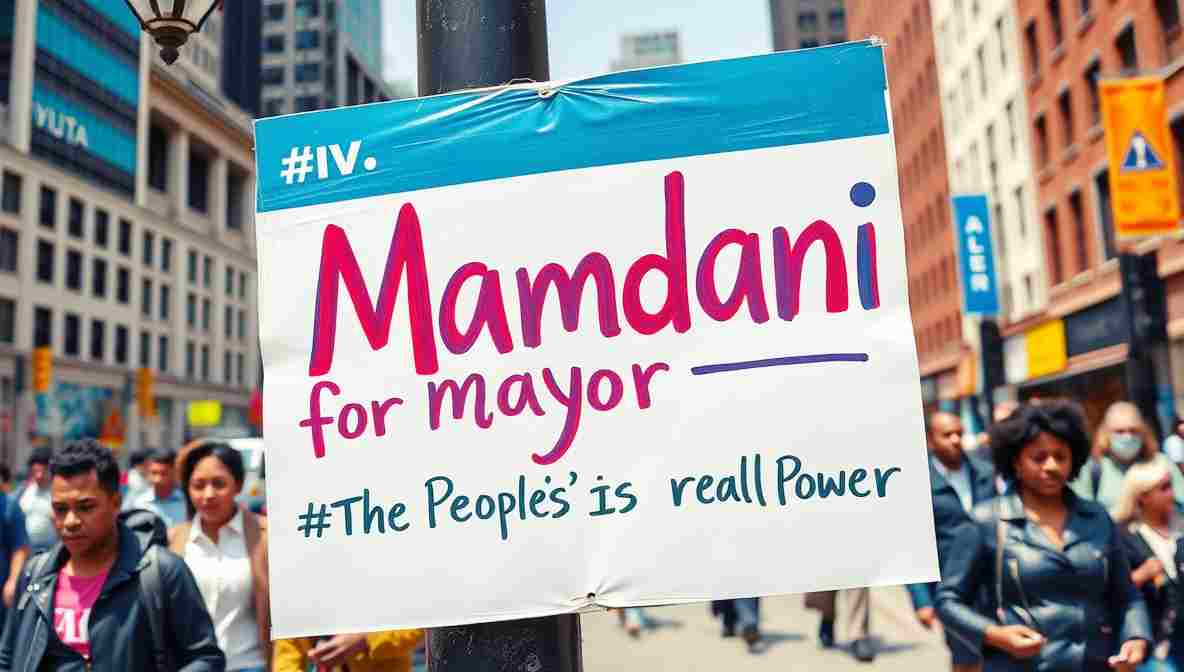The DSA’s Biggest Test: Can Mamdani Govern America’s Largest City?
Activists Discover Governing Requires More Than Twitter Threads
As Zohran Mamdani inches closer to winning the NYC mayoral race, the Democratic Socialists of America face their most significant challenge since figuring out how to fit their full name on a bumper sticker: actually governing. The organization, which has perfected the art of protesting from the outside, now confronts the terrifying prospect of being responsible for fixing the things they’ve been complaining about.
It’s one thing to demand universal housing, free transit, and billionaire taxes while holding a sign. It’s another to implement those policies while navigating City Hall bureaucracy, union negotiations, and the reality that Manhattan’s infrastructure is held together by duct tape and the prayers of MTA workers. The DSA is about to learn the difference between revolutionary slogans and revolutionary governance.
From Protest Signs to Policy Papers
“The DSA’s gonna run New York,” Dave Chappelle said at his show. “That’s wild. These folks went from protesting outside City Hall to potentially running City Hall. It’s like when your friend who complains about restaurant service suddenly has to work in the kitchen. Now you gotta make the food, bro. Not just tweet about it.”
The transition from opposition to governance requires skills the DSA hasn’t needed before, like compromise, coalition-building, and explaining to passionate activists why you can’t immediately nationalize the subway system because, unfortunately, laws exist. It’s the political equivalent of going from backseat driver to actual driver and discovering the car is on fire and also there’s no steering wheel.
Democratic Socialism Meets Democratic Bureaucracy
Mamdani’s platform includes ambitious proposals like universal housing, free public transit, and a wealth tax on billionaires. These are excellent ideas that require navigating the City Council, state legislature, union demands, federal regulations, and the occasional lawsuit from billionaires who have more lawyers than the city has employees.
“Governing is hard,” Bill Burr said on his podcast. “Everyone thinks they can do it until they actually have to do it. The DSA’s got great ideas. Now they gotta implement them. That means dealing with bureaucrats, budgets, and the fact that you can’t just executive order your way to utopia. You gotta actually work with people. Even people you don’t like. Especially people you don’t like.”
The Challenge of Converting Ideology to Infrastructure
The DSA has spent years building a strong ideological framework: tax the rich, house the poor, democratize the workplace, stop endless wars. Translating those principles into actual governance means dealing with things like bond ratings, budget cycles, and the fact that fixing one pothole requires approval from roughly 47 different agencies.
“They want to make transit free,” Trevor Noah said. “Great! Love it! How? Where’s the money coming from? The billionaire tax? Cool. When does that pass? How do you get it through Albany? What’s the backup plan? Governance isn’t just saying what should happen, it’s figuring out how to make it happen. And the how is where dreams go to die.”
Municipal Politics or Municipal Hunger Games
NYC’s government is a labyrinth designed by people who hated efficiency and loved job security. There are 59 community boards, multiple agencies with overlapping jurisdiction, and enough bureaucracy to make Kafka weep. The DSA’s about to discover that revolutionary change moves at the speed of government, which is to say, slower than continental drift.
“New York’s government is insane,” Chris Rock said. “It’s like they designed it to not work. You want to change something? Cool. Fill out these forms, attend these meetings, get these approvals, sacrifice a goat to the parking authority. Then maybe, in ten years, you can paint a bike lane. Good luck revolutionizing that system.”
When Your Base Expects Revolution but Reality Offers Incremental Reform
The DSA’s activist base expects immediate, transformative change. They want billionaires taxed yesterday, housing universalized last week, and the subway fixed before breakfast. Governing means explaining why these things take time, which is roughly as popular as telling kids that Christmas is cancelled because Santa got stuck in committee.
“The activists are gonna be mad,” Amy Schumer said. “They want everything now. I get it. I want everything now too. But governance is slow. It’s compromise. It’s three steps forward, two steps back, and one step sideways to avoid a lawsuit. The DSA’s base wants revolution. They’re about to get process. That’s gonna be rough.”
Coalition Building in a City of Eight Million Opinions
New York has more constituencies than a hedge fund has offshore accounts. There are unions, tenant organizations, business groups, neighborhood associations, and roughly 8 million people who all have opinions about everything. The DSA will need to build coalitions with groups they’ve historically viewed as part of the problem, which is like asking cats and dogs to not just coexist but actively cooperate.
“Building coalitions,” Kevin Hart said at his show. “That’s the polite term for working with people you can’t stand. The DSA’s gonna have to work with unions who protect bad cops, business leaders who fight minimum wage, and politicians who take corporate money. That’s governance. It’s not pure. It’s not pretty. But it’s how shit gets done.”
The Threat of Becoming What You Opposed
The greatest danger facing the DSA isn’t failure to implement their agenda. It’s the risk of being corrupted by power, moderating their positions, and becoming another center-left Democratic operation. It’s happened to every insurgent movement in American politics: come in promising revolution, leave having barely managed reform.
“Every radical movement gets absorbed,” Ricky Gervais said. “They start out wanting to change the system, and the system changes them. The DSA’s got a chance to be different. But power corrupts. And New York City’s power structure is really good at corrupting. They’ve had practice.”
Maintaining Principles While Making Payroll
Governing requires compromise, but the DSA’s identity is built on refusing to compromise core principles. How do you maintain ideological purity while negotiating budget deals with Albany? How do you stay true to your base while making deals with people who fund your opponents? These are the questions that have broken every left-wing movement since forever.
“They’re gonna have to choose,” Sarah Silverman said. “Purity or progress. You can’t have both. You can stay pure and accomplish nothing, or compromise and accomplish something. The question is whether their base will accept compromised victories or demand perfect failures. History suggests people prefer perfect failures, which is why nothing ever changes.”
The Wall Street Sabotage Guarantee
Wall Street has promised to make governing as difficult as possible if Mamdani wins. They’ll move money, threaten investment, and use every lever of power to prove that taxing billionaires destroys economies. It’s the political equivalent of an arsonist setting fires to prove that buildings burn.
“Wall Street’s gonna sabotage him,” Jerry Seinfeld said. “They’re already promising to. They’ll pull money, crash confidence, and then point to the chaos and say, ‘See? Socialism doesn’t work!’ It’s like breaking someone’s legs and then mocking them for not running fast. It’s effective, though. Morally bankrupt, but effective.”
Navigating Federal Hostility
President Trump has already threatened to withhold federal funding from New York if Mamdani wins. This means the DSA would need to govern while being actively sabotaged by the federal government, which is like trying to swim while someone stands on your head and claims you’re proving that swimming is impossible.
“Trump’s threatening to defund New York,” Tom Segura said. “That’s the federal government fighting a city government because they don’t like the politics. That’s not democracy, that’s a hostage situation. The DSA’s gonna have to govern under siege. They better have a plan for that. Spoiler: they probably don’t.”
Learning to Govern in Real Time
Unlike traditional politicians who spend decades learning how government works, the DSA is attempting to govern while learning to govern. It’s like those cooking shows where someone has to make a souffle without knowing what a souffle is. Entertaining to watch, but the results are unpredictable.
“They’re learning on the job,” Jo Koy said. “That’s terrifying and exciting. Most politicians spend years getting corrupted by the system before they govern. The DSA’s gonna skip that step. They might fail spectacularly. But at least they’ll fail while trying something new. That’s better than succeeding at doing nothing, which is what we usually get.”
The Stakes of Failure
If the DSA fails to govern effectively, it won’t just damage Mamdani’s administration. It’ll set back progressive politics for a generation. Critics will point to New York as proof that democratic socialism doesn’t work, ignoring that the system was rigged against them from the start. Success requires not just good policies but near-perfect execution under hostile conditions.
“The pressure’s enormous,” Hasan Minhaj said. “If they fail, everyone says socialism doesn’t work. If traditional Democrats fail, everyone says we need better Democrats. The DSA has to be perfect while fighting with one hand tied behind their back. It’s not fair. But that’s the game.”
The DSA’s test isn’t whether they can protest effectively. They’ve proven that. The test is wheth



